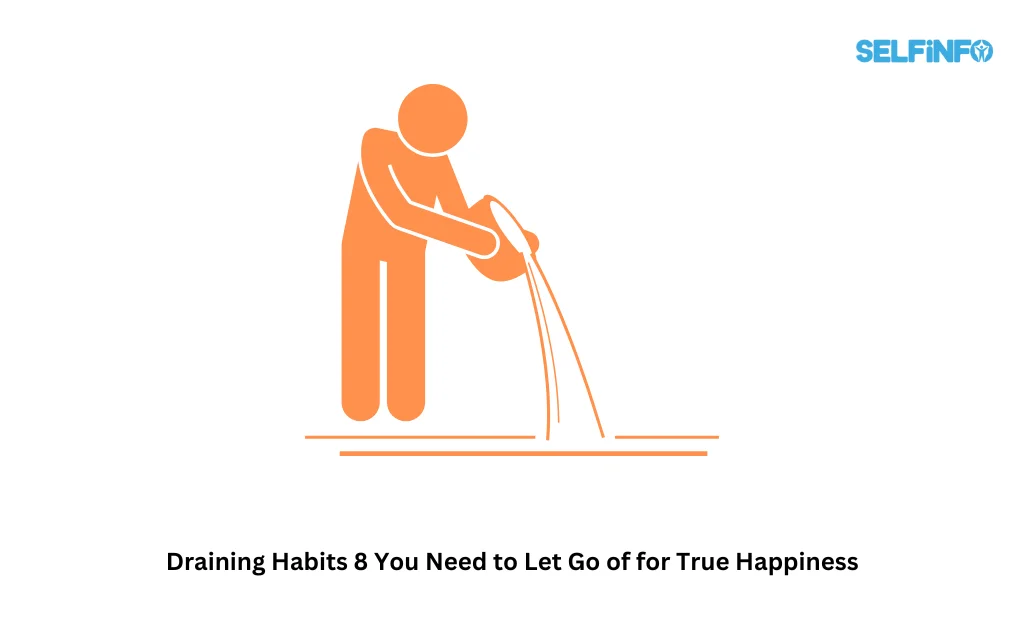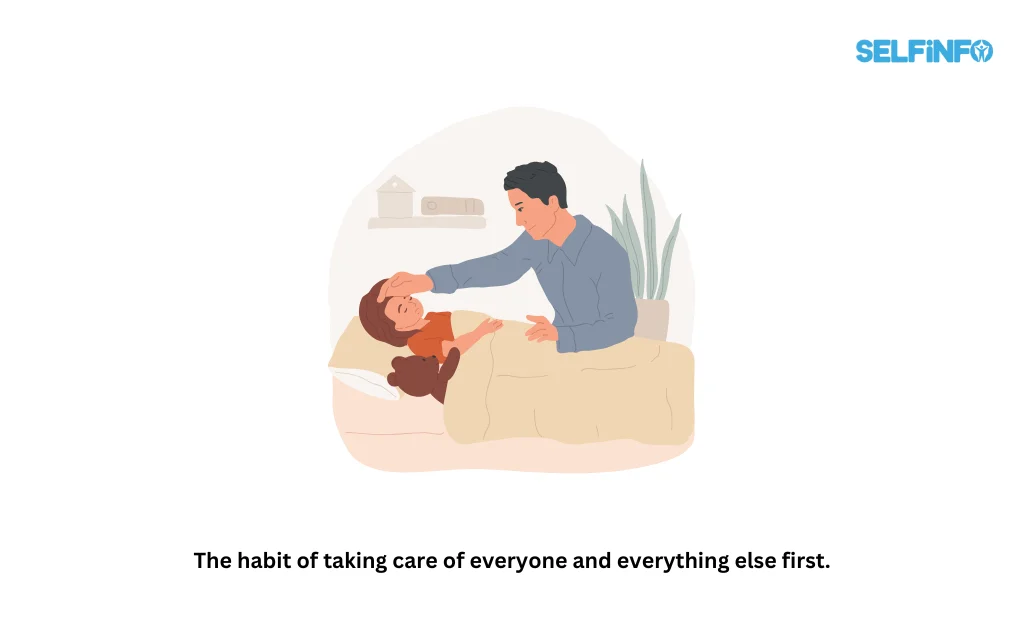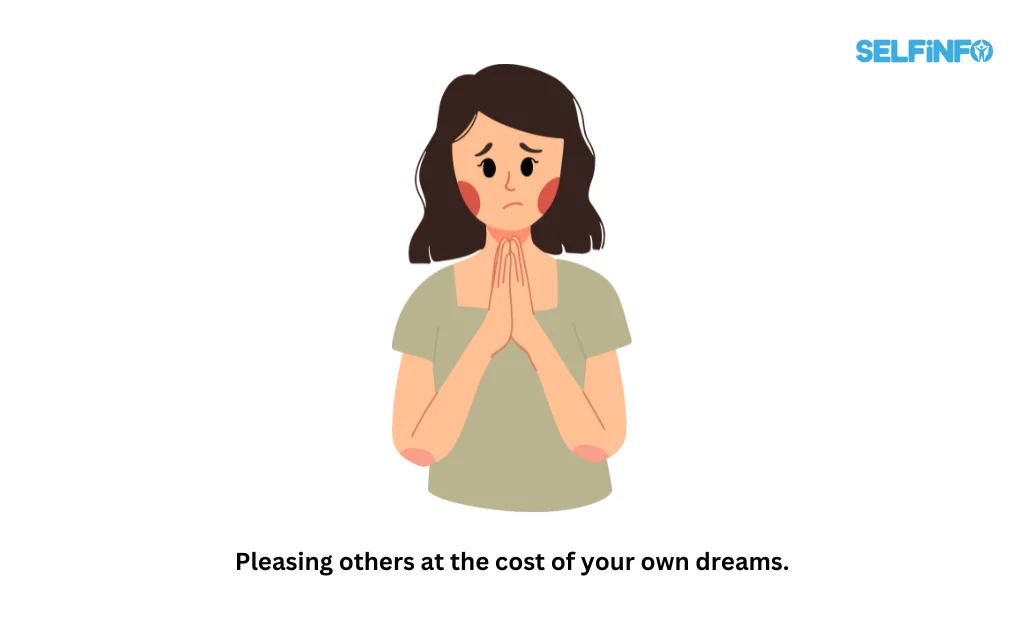Discover 8 draining habits that may seem appealing at first but are not beneficial in the long run.
I would keep thinking about this and yet find it hard to believe. But ever since I began to question the status quo in my life, it had continued. And I am not referring to a loud, intrusive, annoying line of inquiry, but rather a soft, inquisitive murmur that asks: Well, if I may ask, why must things be this way?
In today’s world, challenging the status quo is nothing new, but the problem is that I was challenging the positive aspects of my upbringing, such as the values that form the basis of my value system and the wonderful habits I was raised with.
The concept made logical, in a sad way. I would always feel tired, in a funk, out of sorts, and exhausted after completing one of my “amazing habits,” but not in a successful sense.
I therefore began modifying my automatic behaviors, and I have already seen a change in my mood toward calm. I guess this is the inner, counterintuitive labor that makes self-discovery so enjoyable.
Are you prepared to doubt some of your wonderful behaviors as well? See whether you are caught up in a wonderful habit that is not working for you.

1. The habit of working hard at the exclusion of all else.
I was a total workaholic for the first six years of my corporate employment. Because I disregarded the more crucial elements of developing a job, including establishing relationships and trust, those initial years were also the least fulfilling on both a financial and emotional level.
The majority of us work diligently, and we take satisfaction in that. It is what society expects and rewards, and it is how we were raised.
Just watch out for the trap of hard effort, particularly if you are using it as a Band-Aid solution to something that has not worked out, like pushing yourself farther to advance in your career or win over someone in a romantic relationship.
What to do in its place: Take a moment to reflect on the current circumstance and the larger picture, and consider your current strategy. Will you actually get the outcomes you need with more work?
2. The habit of taking care of everyone and everything else first.

Even as a young child, I could see that many of the sacrifices my mother made for us throughout the years came at the expense of her own income. I saw that she became resentful of this. She did not have to go that far, even though everyone around her was appreciative. She could take care of herself and her family members.
You may be a wonderful mother (or father or sibling), caring and generous, but to a fault.
Before you take care of yourself, you take care of everyone and everything else, including the dishes and laundry. On sometimes, at its expense. You are putting your own health at risk in order to avoid coming across as self-centered.
What to do in its place: Recognize that others do not recognize or appreciate sacrifice. Setting a good example does. To be strong and healthy for the people that matter most in your life, take care of yourself. It is not self-centered. It is essential, self-nourishing, and you are free to do it.
3. The habit of listening to everyone’s problems without boundaries.
I was so eager to make friends as an immigrant in the US that I would be ecstatic if someone confided in me.
My friends began to confide all of their concerns in me as a result of this behavior, which developed into a habit of listening without boundaries. I had to draw the line when I saw it was not benefiting them and was exhausting me.
If a buddy wants to be heard, a parent needs to express concerns, a spouse needs to vent about their job, or a coworker needs to gripe, who could be a better listener? Listening is a gift.
Just be careful, since being the bank where everyone puts their grievances, anger, grief, and sympathy can backfire and wear you down.
What to do in its place: After hearing the original issue, gently steer the conversation in the direction of finding answers, maintaining optimism, and concentrating on the good. It is not your job to be a professional therapist if they still require one!
4. The habit of responding to every call to attention—email, phone, text—right away.

As a physician, my sister-in-law is incredibly kind with my family’s medical inquiries. I sometimes think we take advantage of her medical knowledge.
Going too far can have a negative short- or long-term impact on the relationship, regardless of whose side you are on—giving or receiving the deed.
What to do in its place: Clearly define your boundaries and treat others with respect. If you do not want to give up your goods or services since they are tied to you, it is perfectly acceptable. All it does is make you a professional.
6. The habit of getting straight A’s in every class in your life.
Oh, the predicament of the A student! The A student is praised in every culture and civilization, while the C student is frowned upon. I had always been an A-student, so it is obvious to me that it took away a lot of my joy and enjoyment.
I would be content with a B- and more yoga and fresh air if I could go back. Thank you!
Instead, decide whether you want to attend graduate school or a university at all. Next, decide on your own success metric and follow it. Concentrate on learning and applying the material because it is far more significant than your teacher’s final grade.
7. The habit of doing everything for your kids or students or elderly parents.
Oh, the predicament of the A student! The A student is praised in every culture and civilization, while the C student is frowned upon. I had always been an A-student, so it is obvious to me that it took away a lot of my joy and enjoyment.
I would be content with a B- and more yoga and fresh air if I could go back. Thank you!
Instead, decide whether you want to attend graduate school or a university at all. Next, decide on your own success metric and follow it. Concentrate on learning and applying the material because it is far more significant than your teacher’s final grade.
8. The habit of pleasing others at the expense of your own dreams and desires.

The most difficult aspect of leaving my employment to launch my business was defying my parents’ desires. It was challenging, but for me, it was the only correct course of action.
Saying “yes” is ingrained in us in order to appease our loved ones. If you happen to desire something else, this could be harmful to your happiness.
Instead, stay true to who you are. You can still be nice and kind to other people, but you only have one life to live, and your goals and aspirations are your own, so you should give them your best effort.
Now it is your turn: Do any of these admirable behaviors cause you to stop and reflect? What other positive behaviors have you discovered to interfere with leading a happy life?
